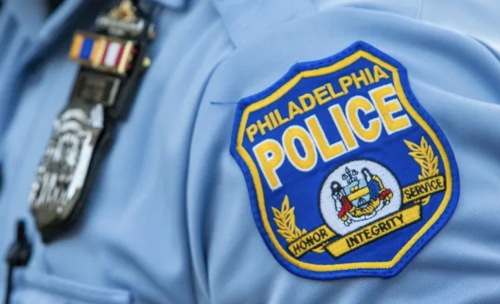

By Daphne Ho
PHILADELPHIA, PA – The Philadelphia Inquirer Editorial Board this week penned a critical opinion piece about the recent promotional decisions by Philadelphia Police Commissioner Danielle Outlaw, detailing the histories of the officers.
The Editorial Board—separate from day-to-day news reporters—noted Outlaw “implemented a second department shake-up in less than a year” in response to increased rates of violent crimes. This “shake-up” includes “promoting several dozen officers and transferring others,” the board said.
The board notes the efficacy of these decisions “remains to be seen,” but asks readers to “hold the applause for now.”
The board said first the promoted officer has multiple infractions with the law, writing, “He was fired in 2020 after allegedly supervising a meeting where officers were instructed to falsify reports in drug cases” and “was also accused of attacking a female officer, hurling racist insults, and hiding information from the District Attorney’s Office.”
The board added the officer’s dismissal was deemed as “violat[ing] policy” by an arbitrator, but the department eventually “reinstated him with back pay.”
The second promoted officer was “charged with aggravated assault and stalking his girlfriend,” and the charges were dropped in 2013 due to the “witness fail[ing] to appear in court,” according to the editorial board.
And the board notes the third promoted officer had “lost his gun” in 2011 and received a three-day suspension.
The board details that, in 2014, the same officer faced a six-day suspension after “improperly releasing three shooting suspects without questioning them, confiscating their weapons, or entering their information into police records,”
The fourth individual the editorial board cites is a police captain, who was not promoted by Outlaw but “had been in line for a promotion,” until an Inquirer Report “detailed chronic absenteeism and chaos in the precinct” overseen by this individual, and he was reassigned instead.
The editorial board said yet another Inquirer investigation regarding the same captain “detailed how the captain and several of his officers had improperly received over $75,000 from a city grant for a youth boxing program.”
A fourth individual mentioned in the editorial focuses on a previous officer, fired for “allegedly stealing money from a man during a traffic stop.” In 2005 he was rehired.
“One way to get ahead in the Philadelphia Police Department is to first get fired,” declares the editorial board, charging the “Fraternal Order of Police,” the biggest police union in the U.S., “protects all cops, even the rotten apples.”
The board adds a statistic found by the news journal regarding police discipline noted, “About 70% of officers disciplined in incidents from 2011 to 2019 had their cases overturned or reduced.”
The board blames wrongful convictions as a consequence of “shoddy police work,” citing the case of India Spellman, a woman who was charged at the age of 17 for a homicide charge of an 87-year-old man back in 2010—the case ended with Spellman’s release from jail after “nearly a decade” because “a judge found her trial was unconstitutional.”
Spellman discussed the circumstances that led to her arrest, confirming she and a teenage witness were “coerced by homicide detective James Pitts.” The board described the police force’s and prosecutor’s “sloppy work… including the destruction of evidence.”
The board said Pitts’ actions caused “city taxpayers $3 million to settle seven lawsuits that accused him of civil rights violations.”
Pitts is not on the force anymore after perjury charges last year, explained the editorial board, noting the representative of the Fraternal Order of the Police, John McNesby, seeks to “represent Pitts and provide an appropriate defense against these allegations.”
The board concluded “promoting cops who have been fired and defending the indefensible undermines public trust and support,” and, “It hurts morale among good cops when they see that even a slap on the wrist comes with a pat on the back.
“The steady stream of rogue officers raises deeper questions about the hiring, training, and culture of a police department that costs taxpayers nearly $800 million a year. It also begs a bigger question: Is anyone policing the police?” the editorial board said.